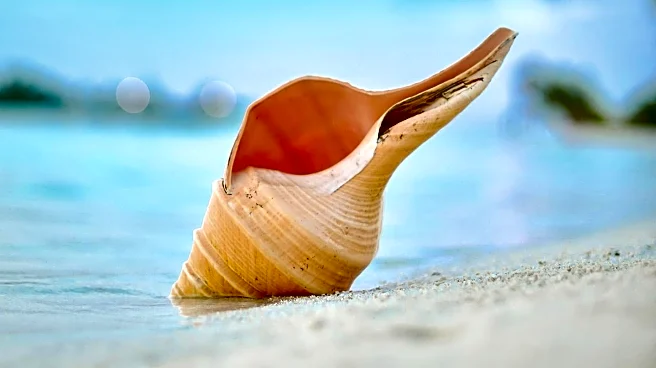What's Happening?
A study conducted by researchers in India has found that blowing a conch shell, an ancient practice, may help alleviate symptoms of obstructive sleep apnea. The research involved 30 adults with moderate sleep apnea who were divided into two groups: one practicing conch blowing and the other performing deep breathing exercises. The conch blowing group experienced fewer breathing pauses, reduced daytime sleepiness, and improved nighttime oxygen levels. The technique involves controlled breathing that strengthens airway muscles, potentially offering a non-invasive alternative to CPAP machines.
Why It's Important?
This study introduces a potential low-cost, non-invasive treatment for sleep apnea, a condition affecting millions worldwide. Traditional CPAP machines, while effective, are often uncomfortable and lead to patient non-compliance. The conch blowing technique could provide a culturally rooted, accessible option for those unable to tolerate CPAP. The findings may encourage further exploration of traditional practices in modern medicine, offering new avenues for treatment and improving patient outcomes.
What's Next?
Researchers plan to expand the study to larger trials across multiple hospitals to test the technique's effectiveness in more severe cases and diverse populations. Future studies will aim to measure long-term changes in airway muscle tone and overall sleep health. The potential integration of traditional practices into mainstream treatment could lead to broader acceptance and application in medical settings.










